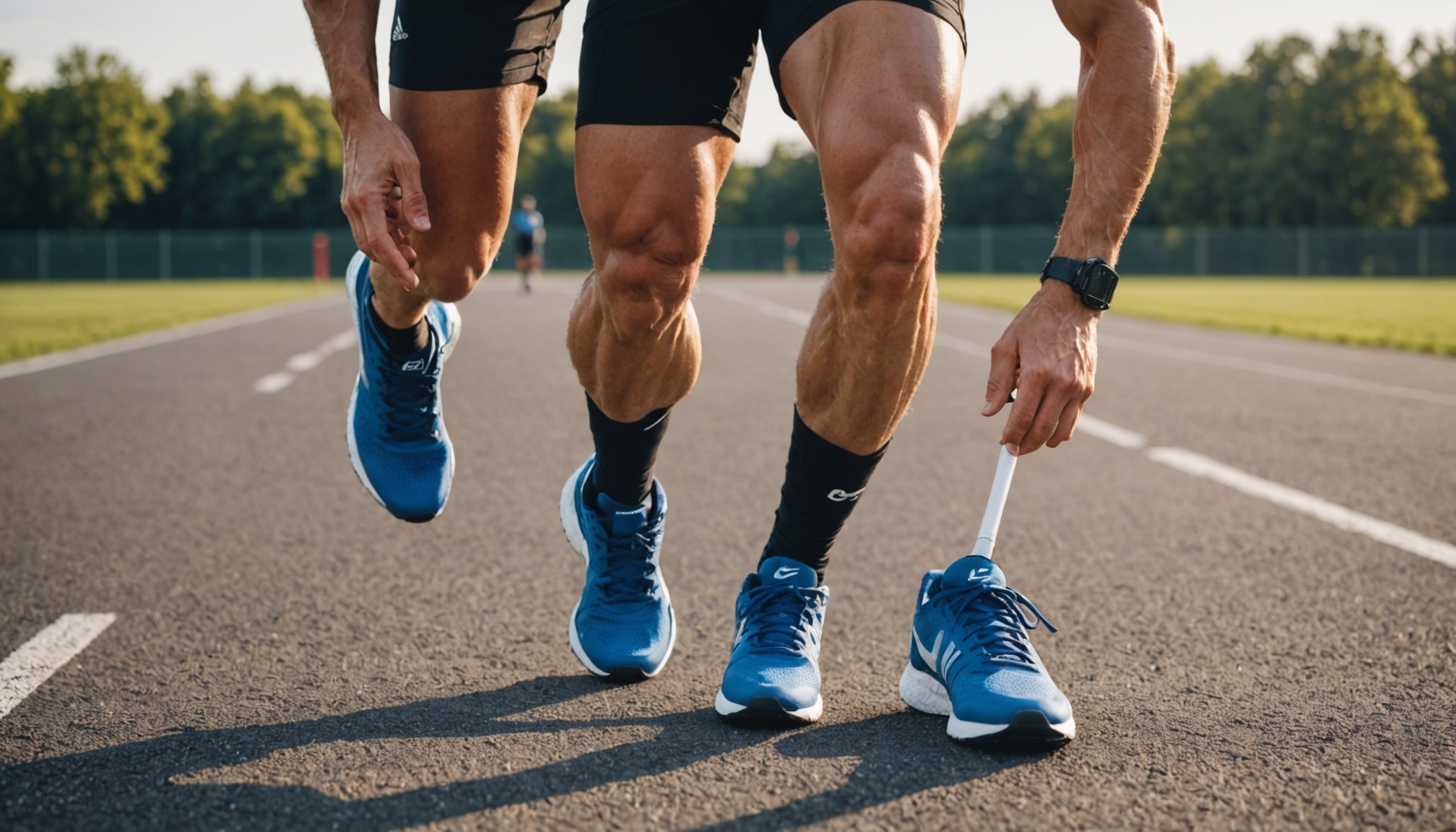Unveiling New Research on Collagen Supplements: Boosting Joint Health for Athletes
The Importance of Collagen in the Human Body
Collagen, often referred to as the “glue” that holds the body together, is the most abundant protein in the human body. It is a crucial component of connective tissue, which includes skin, bones, joints, tendons, and ligaments. As we age, the natural production of collagen in our bodies declines, leading to various health issues, particularly in joint health. For athletes, maintaining healthy joints is paramount for performance and longevity.
How Collagen Supports Joint Health
Collagen plays a vital role in the structure and function of joints. It is a major constituent of cartilage, the substance that cushions the joints and allows for smooth movement. With age, especially after 45, the decrease in collagen production contributes to the thinning and degradation of cartilage, resulting in joint pain and stiffness, often associated with arthritis[1].
In parallel : Proven techniques for athletes to thrive in humid competition environments
Studies have shown that collagen supplementation can be beneficial in supporting joint health. A study published in Current Medical Research and Opinion found that athletes who took 10 grams of collagen hydrolysate daily for 24 weeks experienced significant improvements in joint health and reduced the risk of joint deterioration[1].
Types of Collagen and Their Benefits
There are several types of collagen, each with specific benefits for different parts of the body.
Also to discover : Unlocking peak performance: the essential carb loading guide for triathletes before race day
Type I Collagen
- Benefits: Primarily found in skin, tendons, and ligaments, Type I collagen is essential for skin elasticity and the structure of connective tissue.
- Usage: Recommended for improving skin health and reducing wrinkles.
- Dosage: 5-8 grams per day[5].
Type II Collagen
- Benefits: Mainly found in cartilage, Type II collagen is crucial for joint health and mobility.
- Usage: Recommended for athletes to support joint health and reduce joint pain.
- Dosage: 5-10 grams per day[5].
Type III Collagen
- Benefits: Found in muscles, organs, and blood vessels, Type III collagen supports the elasticity and structure of connective tissue.
- Usage: Recommended for improving muscle recovery and overall tissue health.
- Dosage: 5-8 grams per day[5].
The Science Behind Collagen Supplementation
Collagen supplements, particularly hydrolyzed collagen, are composed of short chains of amino acids that are highly bioavailable. This means they are quickly absorbed by the body, making them effective in supporting collagen synthesis.
Key Amino Acids
- Glycine: Essential for collagen production and muscle recovery.
- Proline: Crucial for collagen structure and joint health.
- Lysine: Important for bone health and collagen synthesis[4].
Studies and Evidence
Several studies have highlighted the benefits of collagen supplementation for joint health.
Study by Current Medical Research and Opinion
- A 24-week study on athletes with activity-related joint pain found that those who took 10 grams of collagen hydrolysate daily experienced significant improvements in joint health and reduced joint pain[1].
Study by CPCAD
- A randomized, double-blind study conducted by the Centre de Pharmacologie Clinique Appliquée à la dermatologie (CPCAD) in Nice, France, found that 10 grams of collagen Naticol® per day for 12 weeks improved joint health and reduced stiffness in subjects aged 50-70[1].
Practical Advice for Athletes
For athletes looking to incorporate collagen supplements into their regimen, here are some practical tips:
Choose High-Quality Collagen
- Opt for grass-fed, pasture-raised collagen peptides to ensure you are getting a high-quality product.
- Check the source if you have allergies to fish or shellfish[2].
Start with a Moderate Dose
- Begin with a moderate dose (5-10 grams per day) to observe your tolerance and adjust as needed[5].
Combine with Other Nutrients
- For optimal results, combine collagen supplementation with other nutrients like glucosamine, chondroitin, and MSM, which also support joint health[3].
Table: Comparing Key Nutrients for Joint Health
| Nutrient | Primary Benefits | Recommended Dosage | Time to See Effects |
|---|---|---|---|
| Collagen | Supports joint structure and mobility | 5-10 g/day | 2-3 months |
| Glucosamine | Supports cartilage and synovial fluid | 1.5-3 g/day | 4-6 weeks |
| Chondroitin | Protects and reinforces cartilage | 800-1200 mg/day | 2-3 months |
| MSM | Improves mobility and reduces inflammation | 500-2000 mg/day | 2-4 weeks |
| Boswellia | Reduces inflammation | 300-800 mg/day | 2-3 weeks |
| Curcuma | Anti-inflammatory | 500-2000 mg/day | 1-2 weeks |
Expert Opinions and Controversies
While many studies support the benefits of collagen supplementation, there are also some controversies and differing opinions.
Dr. Georg Abel
- “Collagen hydrolysate is one of the top nutrients for supporting joint health. It helps reduce joint pain, improve functionality, and prevent degenerative diseases of the bones and joints”[3].
European Food Safety Authority (EFSA)
- Since 2011, the EFSA has not allowed claims that collagen supplements are beneficial for joint health, citing a lack of sufficient evidence. However, some experts argue that this view is outdated and that recent studies have shown significant benefits[4].
Real-Life Examples and Anecdotes
Many athletes and individuals have reported positive experiences with collagen supplementation.
Athlete Testimonial
- “I started taking collagen peptides about six months ago, and I’ve noticed a significant reduction in joint pain after my workouts. It’s been a game-changer for my performance and recovery,” says Sarah, a professional runner.
Collagen supplements have emerged as a promising tool for athletes looking to support their joint health and overall physical performance. By understanding the different types of collagen, the science behind supplementation, and incorporating practical advice, athletes can make informed decisions about adding collagen to their regimen.
Key Takeaways
- Collagen Types: Different types of collagen (Type I, II, III) offer specific benefits for skin, joints, and connective tissue.
- Supplementation: Hydrolyzed collagen is highly bioavailable and can be effective in supporting joint health.
- Combination Therapy: Combining collagen with other nutrients like glucosamine and MSM can enhance its benefits.
- Consult a Professional: Always consult with a healthcare professional before starting any new supplementation regimen.
By integrating collagen supplements into a balanced diet and regular physical activity, athletes can potentially enhance their joint health, reduce pain, and improve their overall performance.








